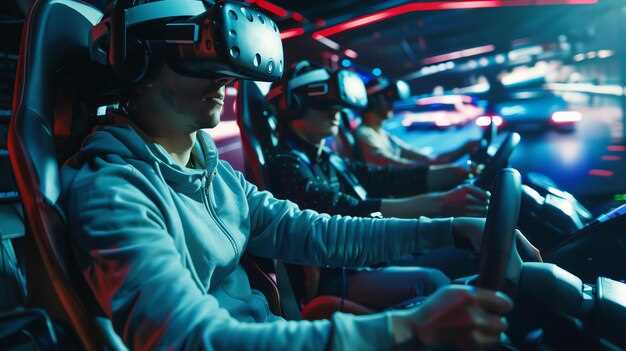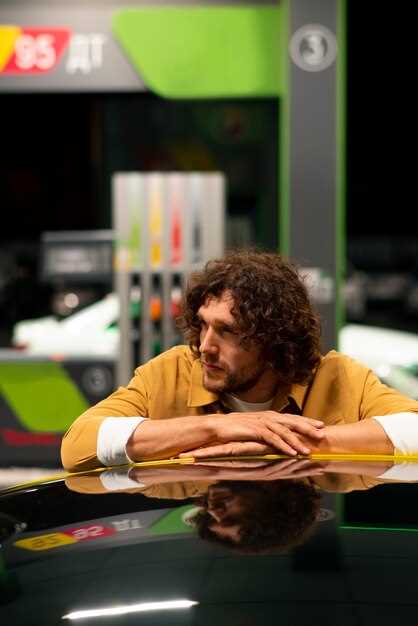
The world of motorsports is undergoing a significant transformation, with sim racing emerging as a formidable contender in the realm of competitive GT events. The rise of reliable technology and high-fidelity simulations has created an engaging platform that mirrors real-world racing dynamics, attracting enthusiasts and professional drivers alike. This surge in interest highlights not only the allure of virtual motorsports but also its potential for redefining competitive racing frameworks.
As the esports landscape continues to evolve, sim racing has carved out a unique niche that bridges the gap between virtual and physical racing. Events such as the GT World Challenge and various esports tournaments have embraced sim racing, allowing participants to showcase their skills on a global stage. The intersection of cutting-edge graphics, realistic physics, and a dedicated community has elevated sim racing, making it an appealing alternative for drivers seeking competition during off-seasons or those looking to hone their skills without the financial burden of traditional racing.
This new wave of competition has prompted established racing organizations to take notice, leading to collaborations and endorsements that further legitimize sim racing as a serious discipline. By streamlining the entry process and enhancing accessibility, sim racing holds the key to attracting a broader audience and nurturing the next generation of motorsport talent. With its growing popularity, one cannot ignore the significant impact sim racing is having on the future of GT events and the realm of competitive racing as a whole.
How Sim Racing Platforms Are Transforming GT Racing Experiences

Sim racing platforms are revolutionizing the way enthusiasts engage with GT racing by integrating advanced technology and realistic simulations. These platforms offer a highly immersive experience that not only attracts casual gamers but also professional drivers looking to refine their skills.
One major transformation is the increasing crossover between traditional motorsport and esports. Events that were once confined to physical racetracks are now expanding into the digital realm. High-profile GT racing series have begun to host virtual competitions, allowing fans to experience the thrill of the race from their own homes. This accessibility has drawn in a wider audience, breaking geographical barriers and fostering a global community of racing enthusiasts.
The realism achieved in simulators has drastically improved over the years, with cutting-edge graphics and physics engines that provide a genuine feel of driving a GT car. These platforms allow for a detailed setup of vehicle dynamics, making it possible for racers to experiment with various tuning options and driving styles. Such an environment enhances training for real-world drivers, enabling them to practice in a safe setting before hitting the track.
Furthermore, the competitive nature of esports has spurred innovation in GT racing formats. Live streaming of events and online championships quickly capture viewer attention, creating a new avenue for sponsorship and marketing within the motorsport sector. Teams now have the opportunity to showcase their brands through virtual events, which can generate significant engagement and viewership.
As sim racing continues to gain traction within the GT racing community, it encourages collaboration between racing teams and gaming developers. This partnership enhances the development of more accurate simulations that reflect the complexities of real-world racing, leading to an overall elevation of the GT racing experience.
In summary, sim racing platforms are not just a form of entertainment; they are reshaping the landscape of GT racing. The integration of esports with traditional racing provides new opportunities for fans, drivers, and teams, making the sport more accessible and engaging than ever before.
Identifying the Best Equipment for Aspiring Sim Racers
As the world of competitive GT events increasingly shifts towards esports, aspiring sim racers must invest in the right equipment to enhance their performance. Selecting the best gear can significantly impact one’s racing experience and competitiveness on the virtual track.
Steering Wheels are one of the most crucial components for any sim racer. High-quality racing wheels provide realistic force feedback, translating in-game sensations into physical feedback, allowing for better control and precision. Look for models that are compatible with popular simulation games and feature customizable settings to cater to personal preferences.
Pedals are another essential aspect of sim racing equipment. A robust pedal system, ideally with separate brake, throttle, and clutch pedals, can replicate the feel of real-world racing. Load cell pedals are recommended as they provide more accurate feedback, particularly for the brake pedal, enhancing braking control.
Racing Seats play a role in comfort and support during lengthy gaming sessions. A dedicated sim racing seat can help in achieving an optimal driving position, promoting better posture and reducing fatigue. Many seats offer customizable adjustments to fit individual body types, which can improve overall performance.
Monitors or VR Headsets can greatly immerse racers in their chosen events. A multi-monitor setup can provide a wide field of view, enabling racers to monitor their surroundings efficiently. Alternatively, VR headsets offer an unparalleled level of immersion, making the racing experience feel incredibly lifelike.
Gaming PCs or consoles are equally important for running sophisticated racing simulations. Ensure that the hardware specifications meet the requirements of the games, particularly focusing on the graphics card, processor speed, and memory capacity to ensure smooth and responsive gameplay.
Lastly, don’t overlook the importance of software. Investing in high-quality racing simulation software is vital to gain the most realistic experience possible. Look for titles that feature a wide range of cars and tracks while offering various gameplay modes and online competitive opportunities.
By carefully selecting the right equipment, aspiring sim racers can significantly enhance their skills, making their journey in the world of esports racing both fulfilling and competitive.
Exploring the Impact of Online Competitions on Real-World GT Events

The rise of esports and online competitions has significantly affected the landscape of real-world GT racing. With the accessibility of sim racing platforms, more fans are engaging with motorsports, creating a bridge between virtual and actual racing environments. These online competitions serve as an introductory platform for aspiring drivers, allowing them to showcase their skills and gain recognition without the substantial costs associated with traditional motorsport.
Moreover, the competitive nature of esports sim racing has prompted established GT teams to pay closer attention to online performances. Identifying talent through virtual championships has become a crucial recruitment tool for many racing organizations. Drivers who excel in online competitions often find opportunities to test and race at real-world events, thus enriching the talent pool in GT racing.
Online competitions also enhance fan engagement, with live-streamed events attracting global audiences. This exposure not only increases viewership numbers but also encourages partnerships between game developers, racing teams, and sponsors. As brands seek to capitalize on the growing intersection of gaming and motorsports, they invest more in both virtual and real-world events, leading to broader marketing opportunities.
Additionally, the synergy between esports and traditional motorsport enhances technological advancement within the industry. Data analytics gained from online racing can provide insights into driving techniques and car setups, which can be applied to real-world practices. The continuous interaction between both realms fosters innovation, creating more competitive and entertaining racing experiences.
In conclusion, the impact of online competitions on real-world GT events is profound. By fostering new talent, enhancing fan engagement, and promoting technological advancements, esports is reshaping the future of GT racing. The collaborative evolution of both domains highlights a dynamic relationship that will likely continue to grow in significance.













